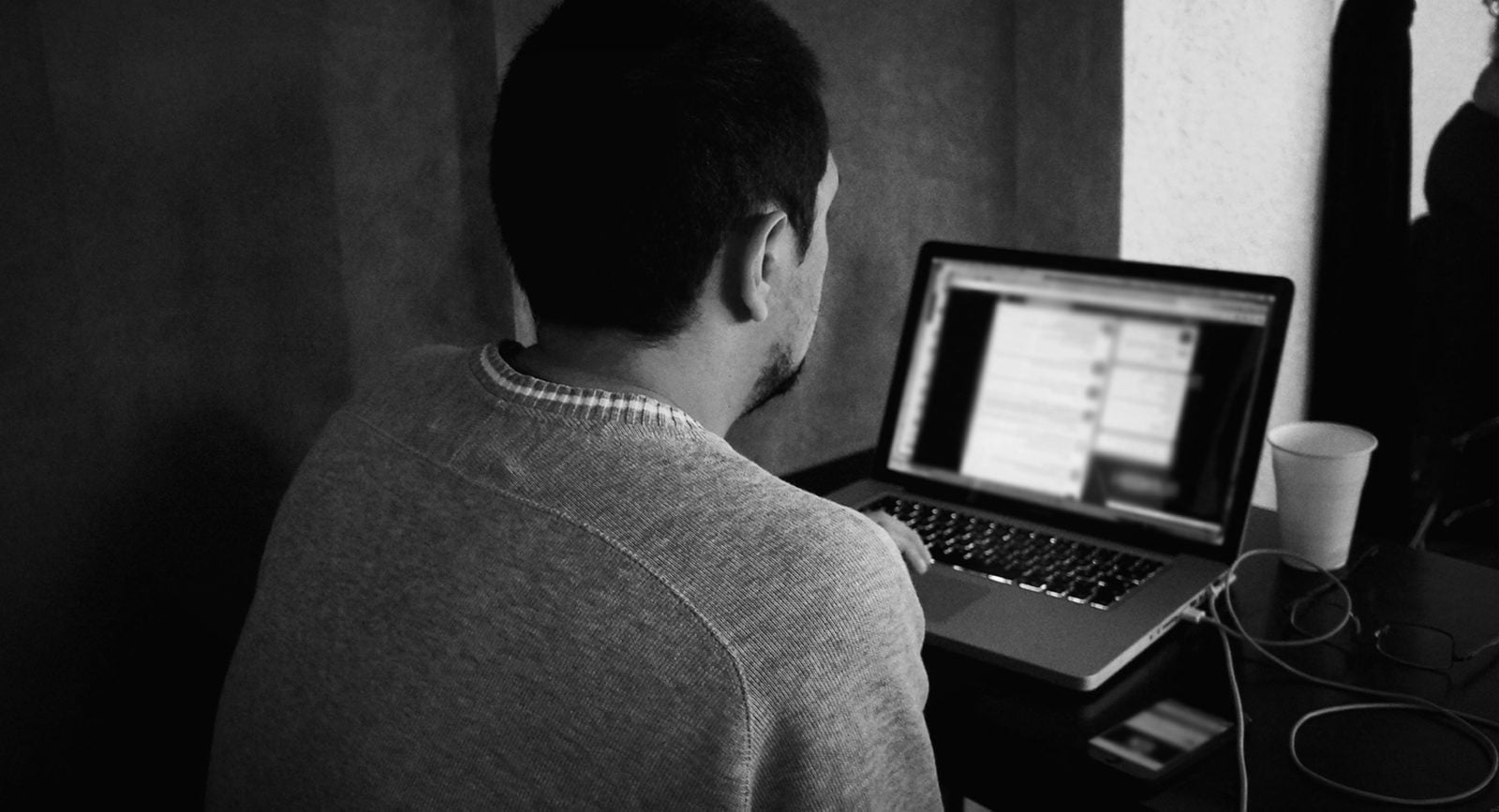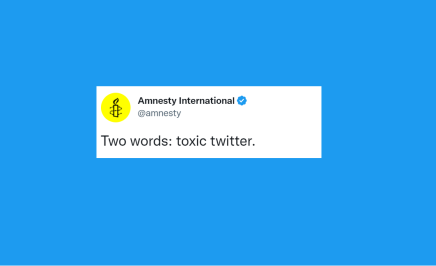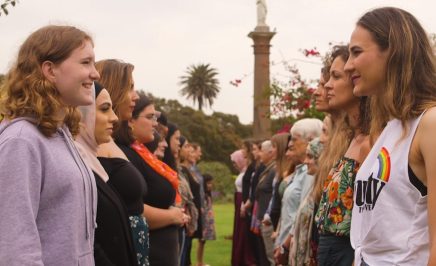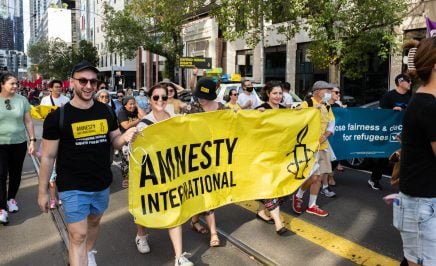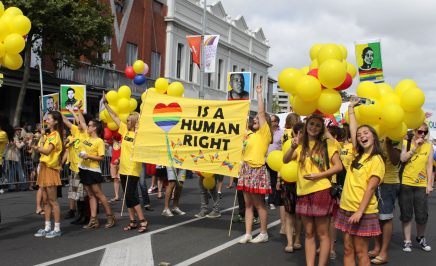New research by Amnesty International has revealed the alarming impact that abuse and harassment on social media are having on women in Australia, with women reporting stress, anxiety, or panic attacks as a result of these harmful online experiences.
The organisation commissioned an Ipsos MORI online poll which looked at the experiences of 502 women between the ages of 18 and 55 in Australia.
Three in 10 women (30%) surveyed said that they had experienced online abuse or harassment. This includes nearly half (47%) of respondents aged 18-24. Alarmingly, 37% of women who had experienced online abuse or harassment said that on at least one occasion, these online experiences made them feel that their physical safety was threatened.
“The internet can be a frightening and toxic place for women. It’s no secret that misogyny and abuse are thriving on social media platforms, but this poll shows just how damaging the consequences of online abuse are for the women who are targeted,” said Azmina Dhrodia, Amnesty International’s Researcher on Technology and Human Rights.
“This is not something that goes away when you log off. Imagine getting death threats or rape threats when you open an app, or living in fear of sexual and private photos being shared online without your consent. The particular danger of online abuse is how fast it can proliferate – one abusive tweet can become a barrage of targeted hate in a matter of minutes. Social media companies need to truly start taking this problem seriously.”
Stress, anxiety, panic attacks
Amnesty International polled women in Australia describing themselves as moderate to active internet users about their experiences of online abuse and harassment.
Two-fifths (42%) of women responding to the survey who had experienced online abuse or harassment said it was misogynistic or sexist in nature, and a fifth (20%) said it had included threats of physical or sexual violence.
Nearly half (48%) of survey participants who had experienced online abuse or harassment said it had included racism, sexism, homophobia or transphobia.
About one in 14 (7%) survey participants who had experienced online abuse or harassment had experienced the posting of intimate images of themselves online without their consent and more than one in 10 (11%) of women responding to the survey who had experienced abuse or harassment online said personal or identifying details of them had been shared online (also known as “doxxing”).
More than half (54%) of women who had experienced abuse or harassment online said it came from complete strangers. About a third (32%) said that the abuse they experienced online came from people they knew offline, with about half as many (15%) saying it came from a current or former partner.
Around a quarter (24%) of women surveyed who said that they had experienced abuse or harassment online said that it had made them fear for their family’s safety.
The psychological impact of online abuse can be devastating.
- More than 3 in 5 (62%) of those who said they had experienced online abuse or harassment said they had experienced lower self-esteem or loss of self-confidence as a result.
- A similar proportion (59%) said they had experienced stress, anxiety or panic attacks after experiencing online abuse or harassment.
- And again, a similar proportion (62%) said they had not been able to sleep well as a result of online abuse or harassment.
- About half (49%) said online abuse or harassment had meant that they had been unable to concentrate for long periods of time.
A silencing effect
Social media platforms, especially for women and marginalised groups, are a critical space for individuals to exercise the right to freedom of expression. Online violence and abuse are a direct threat to this freedom of expression.
Two-fifths (40%) of women who said that they had experienced abuse or harassment on a social media platform either ceased or decreased their use of the platforms. Some women are also restricting what they post about: 27% of those with an experience of online abuse or harassment said they had stopped posting content that expressed their opinion on certain issues, and 23% said they stopped sharing content that expressed their opinion on certain issues.
“Social media has helped enhance freedom of expression, including access to information in many ways. But as offline discrimination and violence against women have migrated into the digital world, many women are stepping back from public conversations, or self-censoring out of fear for their privacy or safety,” said Azmina Dhrodia.
Although these experiences do create a silencing effect, whereby women withdraw or modify their behaviour online as a result, another important finding of the survey is one of resilience: having had the experience of abuse or harassment on social media, 44% stated that they did not change the amount that they use social media at all.
Social media companies not doing enough
All types of violence and abuse online require responses from governments, companies, or both, depending on their type and severity.
Significantly more women said government policies to respond to abuse were inadequate (38%) versus adequate (22%).
The survey also indicates that women feel social media companies need to do more. Just a fifth (20%) of women polled said that the responses of social media companies were fairly, very or completely adequate.
“Social media companies have a responsibility to respect human rights, including the right to freedom of expression. They need to ensure that women using their platforms are able to do so freely and without fear,” said Azmina Dhrodia.
Amnesty International notes that the right to freedom of expression protects expression which may be offensive or deeply disturbing. However, freedom of expression does not include advocacy of hatred or violence. What’s more, the right to freedom of expression must be enjoyed equally by everyone, and includes the right for women to express themselves and live free from violence and abuse, both online and offline.
Social media platforms explicitly state that they do not tolerate targeted abuse on the basis of a person’s gender or other forms of identity, and they now need to enforce their own community standards. They should also enable and empower users to utilise individual security and privacy measures such as blocking, muting and content filtering. This will allow women, and users in general, to curate a less toxic and harmful online experience.
Social media companies must also ensure that moderators are trained in identifying gender and other identity-related threats and abuse on their platforms.
Amnesty International is also calling on governments to ensure that adequate laws, policies, practices and training are in place to prevent and end online violence and abuse against women. However, it is critical that no undue restrictions or penalties are placed on the legitimate exercise of freedom of expression. Tackling online violence and abuse must not be used as an excuse to reduce the enjoyment of freedom of expression.
Twitter & Facebook
A quarter of survey respondents (25%) have a Twitter account, although fewer than half (12%) are active users – i.e. regular browsers – and only a third of those (4%) post regularly.
Regarding Facebook, 82% of respondents have an account, with more than half of those (43%) posting on the platform regularly, and about a third (32%) using their accounts to keep up with goings on, but do not post on them regularly.
Methodology
The research was carried out by Ipsos MORI, using an online quota survey of 502 women aged 18-55, via the Ipsos Online Panel system.
Fieldwork quotas were set on the age, region and working status of the women surveyed according to known population proportions.
Data were weighted using a RIM weighting method, to the same targets to correct for potential biases in the sample.
The survey sample was designed to be nationally representative of women in Australia. The margin of error for the total sample is 4%.
Of the 500 women surveyed, 151 said that they had experienced online abuse or harassment and 117 of whom said that they had experienced this on a social media site.
| Total number of women 18-55 surveyed | Total number of women who say they have experienced online abuse or harassment | Total number who say they have experienced online abuse or harassment on a social media platform | |
| Australia-wide | n=502 | n=151 | n=117 |
When everyone comes together to support the rights of women and girls, we can do so much. One of the best ways to guarantee that the rights of women and girls in Australia are protected is with a Human Rights Act. A Human Rights Act would enshrine the rights of all Australians in law and ensure that they cannot be stripped away or transgressed by people in power. Learn more about our women’s rights campaigns and our campaign for a federal Human Rights Act.
